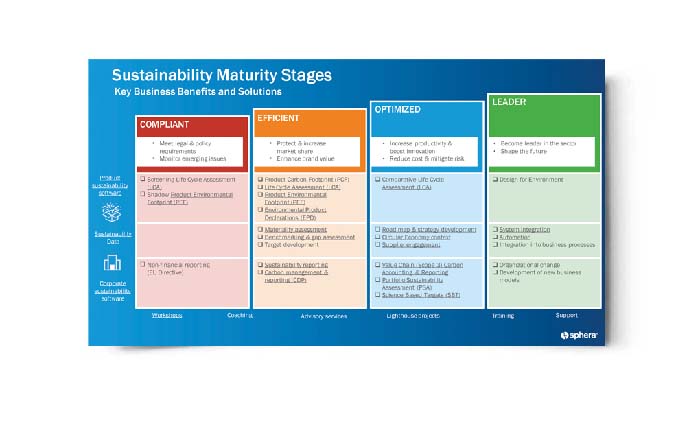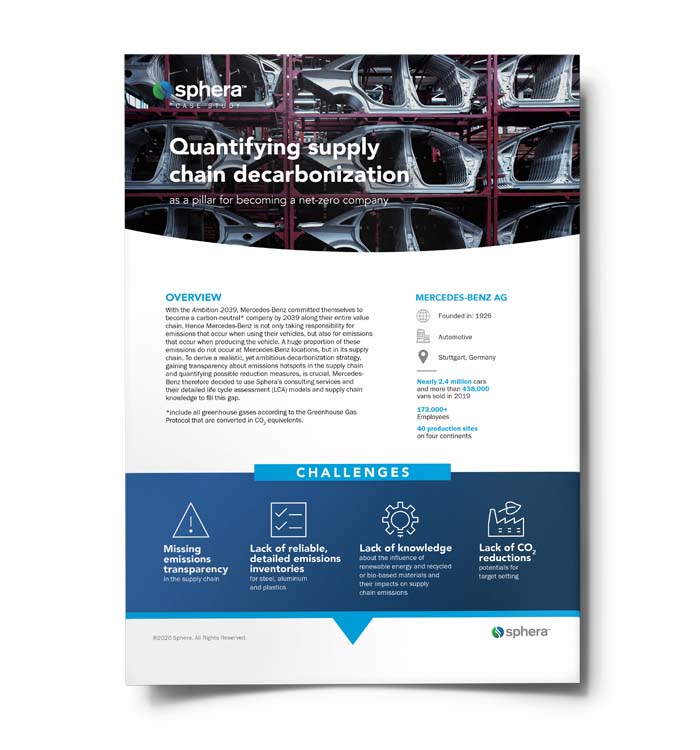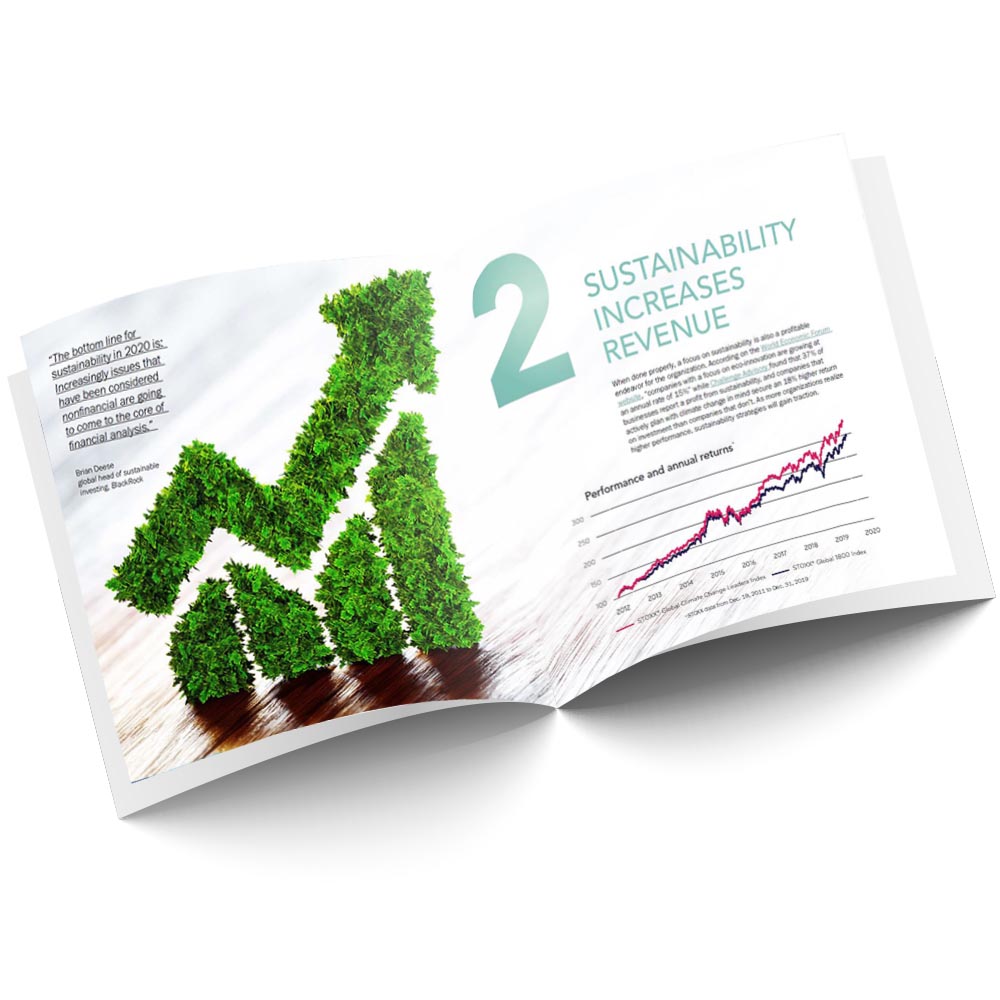The rise of environmental, social and governance (ESG) investing has shown that doing what’s beneficial for the environment and for companies’ bottom lines don’t have to be at odds with one another. In fact, they often go hand in hand.
The term “ESG” was coined in 2005 in a study called “Who Cares Wins.” Fast forward to today, and total global ESG assets are estimated to exceed $41 trillion by 2022 and $50 trillion by 2025. This amounts to “one-third of the projected total assets under management globally,” according to a report by Bloomberg Intelligence.
The popularity of ESG investing has increased rapidly in a relatively short amount of time. It’s no longer just a trend but a mainstream investment strategy.
What Is ESG Investing?
According to Forbes, ESG investing is when investors choose to invest in companies that receive high ratings in environmental, social and governance factors. These ratings are assessed by independent, third-party companies and research groups. Investors are increasingly relying on ESG ratings because of the clarity they provide on companies’ operational performance—and the way those companies manage a broad spectrum of risks.
For example, rising sea levels and storm surge from hurricanes are having an impact on U.S. energy facilities, which is increasing their operational and financial risk. Another dynamic of assessing risk is taking the company’s own environmental impact into consideration.
Investors want to ensure that the companies they’re investing in are engaging in sustainable and ethical business practices. ESG factors give investors a broader view of a company’s performance, allowing them to make more sound investment decisions.
ESG performance criteria include:
Environmental: The “E” in ESG represents how companies manage their environmental impact. This includes a company’s carbon footprint, which can be broken down into its direct (Scope 1) emissions; the emissions from the purchase and use of energy (Scope 2); and supply chain emissions (Scope 3). Other environmental factors taken into consideration include waste management, the company’s impact on air and water quality, and deforestation.
Social: The “S” in ESG focuses on how companies treat their workers and the communities they call home. The social aspect of ESG can include factors such as employee engagement, inclusivity, gender and diversity, data protection, labor standards, human rights and community relations.
Governance: The “G” in ESG encompasses how companies are run, including their internal systems of control, procedures, practices and how they mitigate and respond to violations. Good governance policies foster transparency, ensure that industry best practices are followed and encourage open and ongoing dialogue with regulators. Governance factors include company leadership, audit committee structure, shareholder rights, lobbying, whistleblower programs, political contributions and methods for the prevention of bribery and corruption.
Why ESG Investing Is Important
At Sphera’s virtual ESG Summit in June 2022, Elizabeth Lewis, managing director and deputy head of ESG at Blackstone, talked about the benefits of considering ESG factors during the investment process. According to Lewis, when ESG factors are integrated into the investment process, it reduces risk and creates value for investors and for companies.
Regulators are calling for greater transparency into ESG performance, and investors are increasingly choosing to invest in companies that align with their values and goals. According to a PwC study of 325 investors, 79% said “ESG risks are an important factor in investment decision-making” and 49% said they are “willing to divest from companies that aren’t taking sufficient action on ESG issues.” Additionally, 75% of respondents said they thought it was worth “sacrificing short-term profitability to address ESG issues.”
With the Intergovernmental Panel on Climate Change (IPCC) announcing that we’ll need to cap global warming at 1.5 degrees Celsius (2.7 degrees Fahrenheit) to stave off the worst effects of climate change, it’s clear that now is the time to invest in companies that are preparing for the net-zero, low-carbon future. Investors want to ensure that they’re backing companies that are taking climate change seriously and are taking steps to reduce their environmental impact. According to the PwC report, 65% of investors cited reducing Scope 1 and 2 greenhouse gas (GHG) emissions as one of the top ESG issues for companies to prioritize. Thirty-four percent cited Scope 3 emissions reduction as a top priority.
According to the Royal Bank of Canada (RBC), there used to be a misconception that ESG investing resulted in a lower return on investment. However, the RBC reported that in recent years, ESG stocks have become a better value for investors’ long-term goals.
ESG Investing Challenges
With ESG assets expected to increase in the coming years, it’s clear that ESG investing is here to stay. But, despite the myriad benefits of ESG investing, investors still face challenges. Transparent reporting on ESG metrics can be difficult to obtain, as many companies lack the right software, data and expertise to track and communicate ESG performance to investors, regulators and the public.
Without quality data to back up ESG commitments, companies risk being accused of “greenwashing,” which is when companies present their products or services as being more sustainable than they actually are, often for the sake of marketing. In a recent episode of the SpheraNOW ESG podcast, Mike Zamis, Sphera’s chief product officer, addressed the significant challenges companies face in avoiding greenwashing. He pointed out that managing disparate data sources and complying with different regulatory frameworks present the biggest challenges.
“There are no real rules around ESG. There’s lots of disclosure frameworks, and there’s lots of metrics that we can follow up on. Some companies, from a competitive point of view, feel that they need to really stretch their ESG credentials and / or their sustainability credentials. Sometimes you find companies going too far, and really stepping outside of what they actually do, and that’s where you really get into greenwashing,” he said.
As was discussed in the podcast, there is a lack of standardized metrics for ESG reporting, which makes it difficult for investors to assess companies’ ESG performance. However, there are several efforts to create global standards, like the Partnership for Carbon Accounting Financials (PCAF) and the Global GHG Accounting and Reporting Standard for the Financial Industry, which we covered in detail in our blog, PCAF and Its Impact on the Financial Industry: How Financial Leaders Can Join the Fight Against Climate Change.
The Future of ESG Investing
According to the RBC, choosing ESG investments ensures that investors’ portfolios are prepared for the changes that must occur to make the global economy more sustainable, like reaching net zero emissions by 2050.
According to research from The Economist Intelligence Unit and RBC Wealth Management, younger generations are more concerned about companies’ ESG performance than older generations. As a result, younger investors are increasingly considering ESG factors in their decisions to invest in companies.
As the climate changes, we must also change our behavior—this includes choosing to invest in companies that embrace ESG. After all, when we invest in making the planet a safer, more sustainable and productive place, we all benefit.










